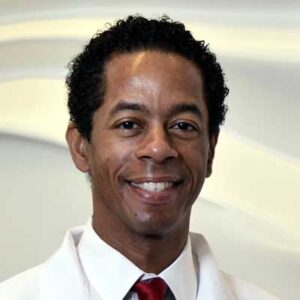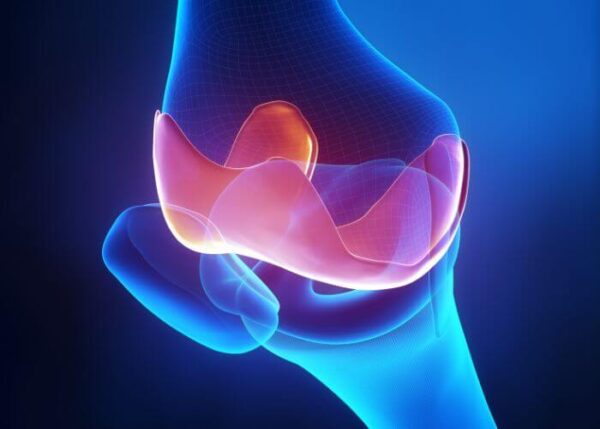Osteochondral Allograft Transplantation Specialist

Dr. Riley J. Williams performed the first fresh osteochondral allograft transplant in New York State in 1998 and since then, has performed over 3,000 OCA transplant surgeries. OCA or osteochondral allograft transplantation treats patients who have large areas of damaged articular cartilage in the knee. If you experience pain, inflammation or catching of the knee that affects your athletic performance or everyday tasks, and if you are under the age of 50, you may benefit from this type of treatment. Patients in Manhattan, Brooklyn, New York City and surrounding areas who would like more information on an OCA transplant should contact Dr. Williams’ team today!
What is osteochondral allograft transplantation (OCA)?
Dr. Williams performed the first fresh osteochondral allograft transplant in New York State in 1998. Osteochondral allograft transplantation is a surgical procedure that uses healthy tissue from a cadaver donor to repair a cartilage injury or defect. Most osteochondral allograft procedures are performed in the knee. Damaged knee articular cartilage results in exposed bone in the knee joint. Loading of this exposed bone causes knee joint pain, friction and inflammation. During an osteochondral allograft transplantation procedure, a donor cartilage graft is shaped to fit the area of cartilage deficit. The allograft is then transplanted into the cartilage defect and replaces the damaged section. The transplanted graft immediately fills in the missing cartilage and help provide the patient with pain relief and improved knee function. Dr. Riley J. Williams, orthopedic knee surgeon, serving Manhattan, Brooklyn, New York City, NY and surrounding areas, has extensive experience in performing osteochondral allograft transplantation.

What does an OCA transplant treat?
Osteochondral allograft transplantation is used to treat large areas of damaged articular cartilage in the knee. If an individual experiences pain, inflammation or catching of the knee that affects athletic performance or everyday tasks, and the individual is under the age of 50, he or she may benefit from this type of treatment. Those who suffer from osteochondritis dissecans (damaged cartilage associated with a bone disorder), avascular necrosis (bone tissue death) or localized, full-thickness cartilage, may benefit from osteochondral allograft transplantation. Osteochondral allograft procedures can be used to treat all surfaces of the knee joint: femur, patella and trochlea. Dr. Williams will discuss the severity of the injury and the required treatment with the patient.
How is an osteochondral allograft (OCA) transplant performed?
Osteochondral allograft transplant is a relatively simple procedure that is done on an outpatient basis. Light sedation and regional anesthesia is used for this surgery. Because Dr. Williams is replacing large areas of cartilage, osteochondral allograft transplantation requires the use of a small incision just adjacent to the patella tendon. Most implanted allografts are cylindrical and are called dowel grafts; the top of the graft is cartilage and the bottom in bone. After Dr. Williams makes the incision, he measures the defect. He prepares the damaged cartilage area in preparation for allograft implantation. The sterile allograft is sized to fit perfectly over the damaged section that was prepared. Most graft are placed as a “press fit”; screws or pins are not typically needed to stabilize these grafts. Graft stability is ensured by bony ingrowth into the base of the implanted graft. Long term graft survival is maintained by the live cells that reside within the cartilage of the donated graft.
Patients use crutches for one week, and then are allowed to full-weight bear. A small brace is used early during the rehabilitation process; bracing discontinued after approximately 3 weeks. Physical therapy starts one week after surgery and continues for about 3 months following the procedure.
What are the risks of OCA surgery?
Rare side effects include infection, bleeding, continued pain, stiffness and allograft rejection. Infection is rare due to strict standards for screening and sterilizing donor tissue; prophylactic antibiotics are always used before surgery to mitigate the infection risk. Larger allografts can fragment or collapse if not properly implanted. Graft rejection is exceedingly rare. Dr. Williams has performed over 3000 OCA procedures and seen this occur in one patient over 20+ years.
How long does it take to recover from an osteochondral allograft transplant?
Most OCA transplant patients are fully recovered around six months. Normal activities of daily living are manageable in most patients by 4 weeks after surgery. Full clearance for sports is predicated on the return of normal knee strength, range of motion and coordination. MRI scans are used at 6 months to confirm graft incorporation and competency prior to clearance for sports.
For additional resources on osteochondral allograft transplantation or to have your knee pain evaluated, please contact the office of Dr. Riley J. Williams, MD, orthopedic knee surgeon serving Manhattan, Brooklyn, New York City, NY and surrounding areas.
